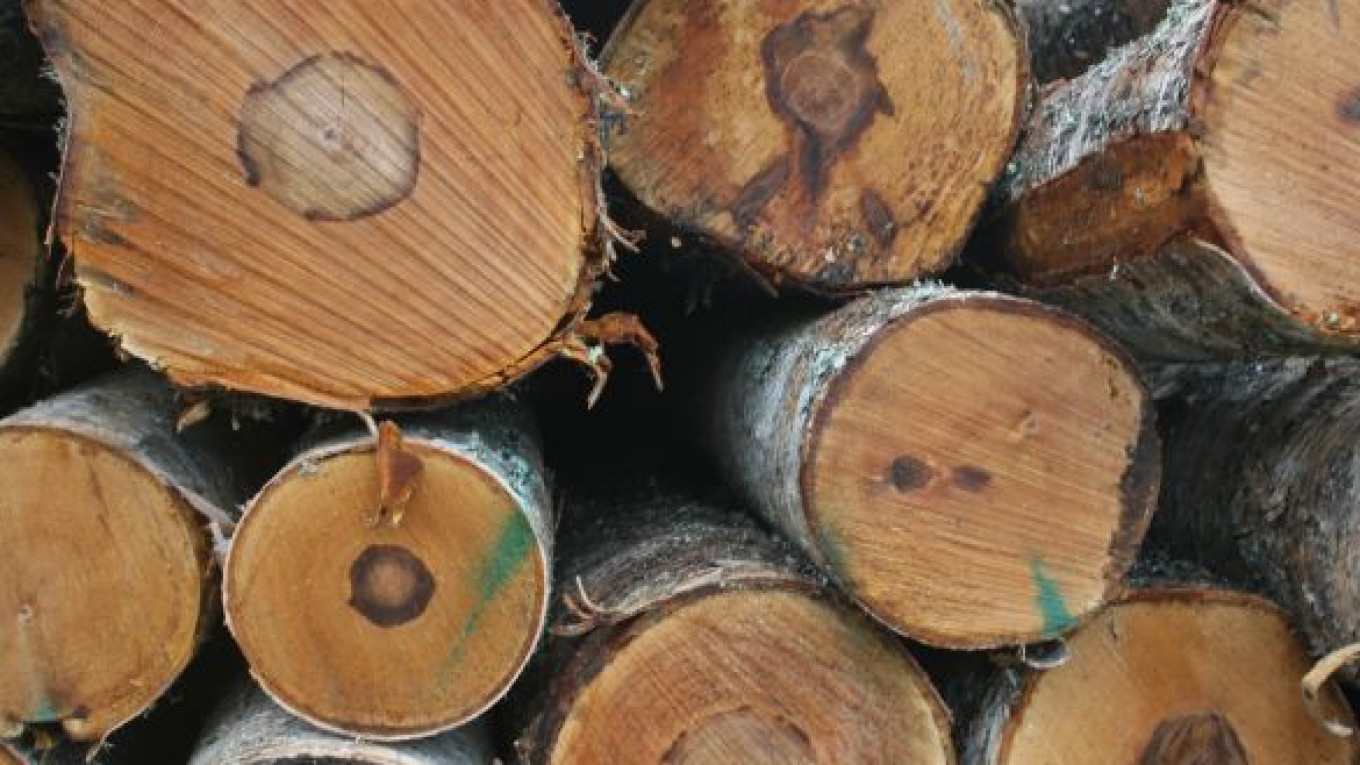Forestry workers can expect a pay raise next year as the government seeks to get a grip on the endemic wildfire problem and widespread illegal logging.
Federal Forestry Agency chief Victor Maslyakov said Tuesday that both regular forest rangers and airborne fire fighters, the agency's "forest special forces," would be better rewarded to reflect the importance of their work and the dangers they face.
But wages vary wildly from region to region, with rangers across the country making from 70,000 rubles ($2,200) to just 4,000 rubles ($125) a month, Maslyakov said.
"As far as regular forest rangers are concerned … the aim is they should be paid not less than 30,000 rubles a month," he said at a news conference Tuesday. "The absolute minimum we should aim for is not lower than the average wage in a region," he said.
There are about 18,000 employees at the Federal Forestry Agency, meaning that each inspector has responsibility for about 65,000 hectares of land. That falls to 5,000 hectares in parts of European Russia. In parts of the Far East, there is only one ranger for each 200,000 hectares of Forest, RIA-Novosti reported, citing Forest Agency documents.
A chronic shortage of forestry service personnel resulting from reforms in 2006 was widely blamed for the disastrous wildfires that swept European Russia in the summer of 2010.
Airborne firefighters, who are delivered by helicopter to fight fires in remote areas, were thrown into the spotlight this summer when 8 of them died battling blazes in the Tyva republic in June. Maslyakov said 13 airborne firefighters were killed in 2012.
Maslyakov rejected accusations of playing down the extent and seriousness of wild fires, but he acknowledged that local authorities could underreport.
"Every fire has its own passport. It is numbered and measured and watched," he said.
At the height of the fires this summer, Greenpeace said publicly available satellite images showed that millions of hectares were burning, while official figures on the Emergency Ministry's website showed just over 18,000 hectares.
An integrated forestry registry is due to be introduced Jan. 1 to combat illegal logging. The real-time database will record every event relating to forests across the country, from the issuance of logging permits to the felling of tress and forest fires
The registry is an effort by the government to close loopholes that have allowed black-market lumberjacks to "correct" documents to mislead inspectors.
In the Moscow region, the main threat to trees comes not from loggers or fire but from beetles.
Spruce bark beetles have swept through European forests in recent years and do significant damage to spruce trees.
Up to 3 million cubic meters of timber will have to be felled each year for the next five to seven years to bring the epidemic under control, Maslyakov said.
"If you go up in a plane and look down, you can see the infected area, these brown patches among the green," he said.
About 35,000 of the 2.1 million hectares of woodland in the Moscow region is affected by the epidemic, which experts believe began during the dry summer of 2010.
The beetles attack only spruce trees and can destroy a healthy tree within a month. Apart from felling infected trees, the only way to combat the beetles is with pheromone traps.
Related articles:
A Message from The Moscow Times:
Dear readers,
We are facing unprecedented challenges. Russia's Prosecutor General's Office has designated The Moscow Times as an "undesirable" organization, criminalizing our work and putting our staff at risk of prosecution. This follows our earlier unjust labeling as a "foreign agent."
These actions are direct attempts to silence independent journalism in Russia. The authorities claim our work "discredits the decisions of the Russian leadership." We see things differently: we strive to provide accurate, unbiased reporting on Russia.
We, the journalists of The Moscow Times, refuse to be silenced. But to continue our work, we need your help.
Your support, no matter how small, makes a world of difference. If you can, please support us monthly starting from just $2. It's quick to set up, and every contribution makes a significant impact.
By supporting The Moscow Times, you're defending open, independent journalism in the face of repression. Thank you for standing with us.
Remind me later.






